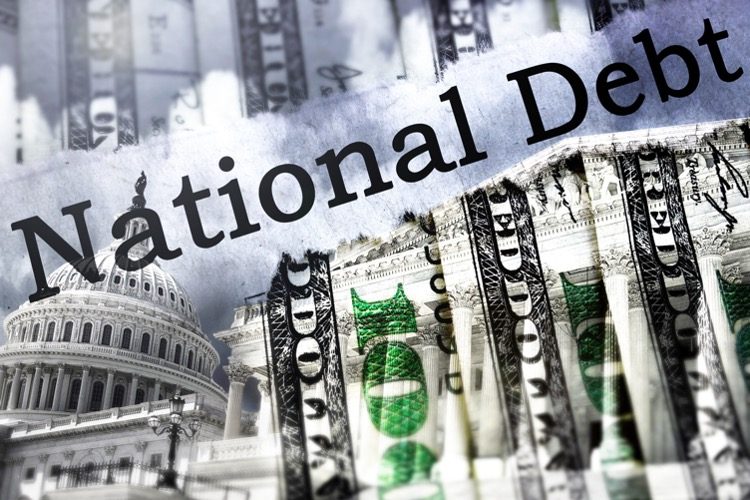
The U.S. national debt surpassed $34 trillion for the first time in history on Friday, according to U.S. Treasury data. The growing record debt only highlights the need for political leaders to reduce government spending while making positive moves toward fiscal responsibility.
The national debt is the total of all outstanding government liabilities owed to the public or intragovernmental agencies. It includes Treasury bills, notes, and bonds, as well as Treasury inflation-protected securities (TIPS), Federal Financing Bank (FFB) securities, U.S. Savings Securities, government account series, and more.
“We are beginning a new year, but our national debt remains on the same damaging and unsustainable path. Following last year’s debt ceiling deal, we quickly crossed $32 trillion in June, $33 trillion in September, and now we are soaring past $34 trillion. Looking ahead, debt will continue to skyrocket as the Treasury expects to borrow nearly $1 trillion more by the end of March. Adding trillion after trillion in debt, year after year, should be a flashing red warning sign to any policymaker who cares about the future of our country,” said Michael Peterson, CEO of the Peter G. Peterson Foundation, in a statement.
The national debt is now double what it was in 2014 and is expected to nearly double in size again over the next three decades, according to the long-term budget outlook of the Congressional Budget Office (CBO).
According to the CBO, at the end of 2022, the national debt grew to about 98 percent of gross domestic product (GDP). The CBO projects that publicly held debt will be equal to a record 181 percent of American economic activity by 2053.
Maya MacGuineas, president of the Committee for a Responsible Federal Budget, shared concern over the growing debt while offering some good news, stating, “2023 was actually a good year for fiscal responsibility, where we saw a net $1.3 trillion improvement in the ten-year deficit picture, largely thanks to the bipartisan Fiscal Responsibility Act (FRA). That’s a decent down payment on the much-needed deficit reduction it will take to stem the rise in our national debt.”
“But as we enter 2024, there is a huge risk we will return to making things worse by adding new tax cuts, spending increases, and/or ignoring the caps agreed to in the FRA,” MacGuineas added.
Michael Peterson explained that the “debt rises unabated because of well-known, structural drivers, including an aging population, high healthcare costs, rising interest costs, and a tax system that doesn’t fund what we’ve promised.”
Government programs such as Medicare and Social Security will suffer a major funding shortfall by 2033 if Congress doesn’t change the current funding practices and fiscal policies. Add in inflation and higher interest rates, and finding a solution to reducing the national debt becomes much more difficult.
In recent years, both Democrats and Republicans have played politics calling for debt reduction, but then never coming to any agreeable or appropriate path of doing so. A great example of the partisan chess match over government spending and reducing debt is this month’s near stalemate in passing appropriations bills before another potential government shutdown.
White House spokesman Michael Kikukawa added to the rhetoric, reportedly blaming the GOP for the rising debt, “saying in a statement that the steady accrual over years was ‘trickle-down debt — driven overwhelmingly by repeated Republican giveaways skewed to big corporations and the wealthy.’”
However, Peterson shared a bit of optimism for Congress in finding common ground in solving the debt crisis, stating, “to help break through partisan gridlock, lawmakers on both sides of the aisle and in both the House and the Senate have supported a bipartisan fiscal commission. This is promising, because a dedicated, comprehensive process would put everything on the table, allowing lawmakers to look across the entire budget to recommend revenue and spending reforms that stabilize our debt. Nine-in-ten voters, across party lines, support a bipartisan fiscal commission, because they understand that we can’t borrow our way to a positive economic future. As we enter a critical election year, it’s an important time for a national conversation about our fiscal outlook and economic future, and an opportunity to start to put the nation on a stronger, more sustainable path.”
Now is the time for Congress to act by greatly reducing government spending and become fiscally responsible. Otherwise, the dire consequences of their current fiscal policies will relegate the United States to permanent third-world status.



